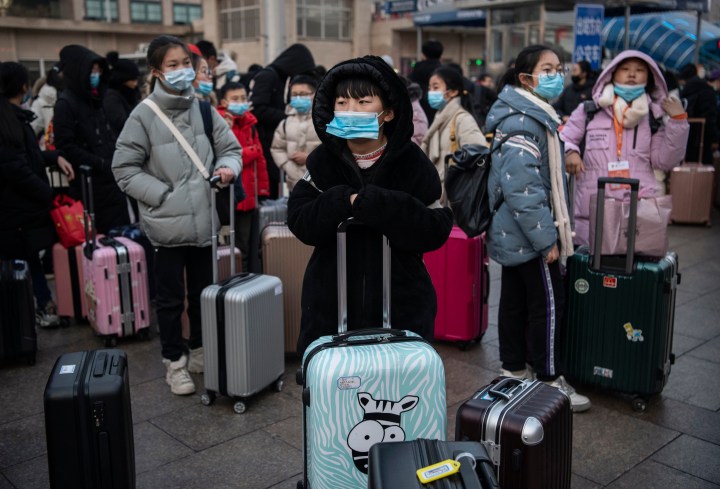
5 things you need to know about the coronavirus

This post was updated on Jan. 30, 2020 at 12:20 p.m. ET.
A new strain of coronavirus has spread globally, leaving at least 170 people dead.
The Centers for Disease Control and Prevention announced its fifth confirmed case in the U.S. on Sunday. The patient is from Maricopa County, Arizona, and had recently returned from Wuhan, China — the city where the outbreak originated.
The other confirmed patients, who had also recently taken trips to Wuhan, include a Chicago-based woman in her 60s, a man in his 30s from Washington state, a man in his 50s from Orange County, and a patient from Los Angeles County.
Here’s a look at what the virus is, where it has spread, and whether a cure will be available soon.
1) What is the coronavirus?
Coronaviruses are a group of viruses that can cause mild to moderate upper-respiratory tract illnesses (like the common cold), along with more severe symptoms that can progress to infections, according to the Centers for Disease Control and Prevention.
The coronavirus we’re hearing about is a newly identified strain that’s been temporarily named 2019-nCoV, and it can spread through human-to-human transmission. Symptoms include fever, cough, breathing difficulties and pneumonia.
2) How many people have been affected by this strain of the virus?
At least 170 people have died from the virus, and more than 7,700 have been infected.
Wuhan, which is home to about 11 million people, is now building a 1,000-bed hospital to deal with the increasing number of patients.
3) Where has the virus spread?
Along with mainland China, there are confirmed cases in the U.S., Hong Kong, Japan, Thailand, France, Macau, South Korea, Vietnam, Cambodia, Nepal, Singapore and Taiwan.
4) Is there a cure for the coronavirus?
Right now, there is no vaccine available to protect against infection with the virus. However, Dr. Paul Stoffels — the chief scientific officer at Johnson & Johnson, told Marketplace Morning Report that there is work underway to find one.
Stoffels said the sequence of the virus — that is, its genetic information — has been available for a few weeks, so laboratories in the pharmaceutical industry have been able to start constructing vaccines.
“The lab technicians and scientists … told me today that they had already advanced the first version of a vaccine into the laboratory space,” Stoffels said. “So that will take several months before it will be able to be tested.”
However, it might take more than a year before a vaccine is ready.
“We are now organized. Ebola was a wake-up call to the world. We kicked it off when the [World Health Organization] called for vaccines, and one year later, we were in the clinic [and] we produced 2 million vaccines,” Stoffels said. “It is possible to do within one year.”
To reduce your risk of infection, the CDC recommends you wash your hands often with soap and water for at least 20 seconds; avoid touching your eyes, nose or mouth with unwashed hands; and avoid close contact with people who are sick.
5) What measures is China taking to stop the spread of the virus?
Chinese officials have shut down public transportation, movie theaters and internet cafes in the city of Wuhan, according to Jennifer Pak, Marketplace’s China correspondent. Residents have been told not to leave the city without “specific reasons.”
Countermeasures are also taking place in surrounding cities, and fear of the virus has impacted areas as far away as Shanghai.
“This time last year, there were a lot of people walking by on Lunar New Year’s Eve, but there aren’t so many now,” fruit stand vendor Qiu Jianxian told Pak. “Many won’t leave their homes because of the coronavirus.”
Tourist attractions in Shanghai like museums and skyscrapers have reportedly closed, but there are two businesses that are now actually doing well: those that sell face masks and food delivery platforms.
Additional reporting by Victoria Craig and Jennifer Pak.
There’s a lot happening in the world. Through it all, Marketplace is here for you.
You rely on Marketplace to break down the world’s events and tell you how it affects you in a fact-based, approachable way. We rely on your financial support to keep making that possible.
Your donation today powers the independent journalism that you rely on. For just $5/month, you can help sustain Marketplace so we can keep reporting on the things that matter to you.












